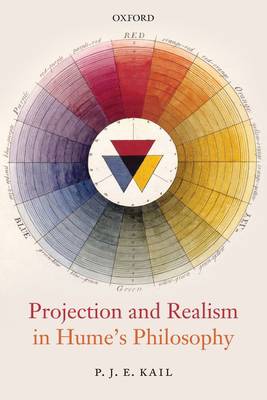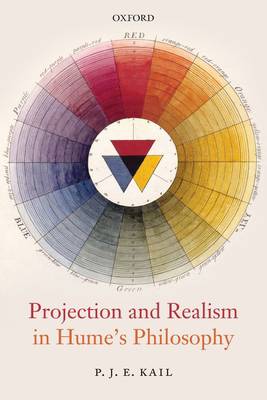
- Afhalen na 1 uur in een winkel met voorraad
- Gratis thuislevering in België vanaf € 30
- Ruim aanbod met 7 miljoen producten
- Afhalen na 1 uur in een winkel met voorraad
- Gratis thuislevering in België vanaf € 30
- Ruim aanbod met 7 miljoen producten
Zoeken
€ 96,95
+ 193 punten
Uitvoering
Omschrijving
In his writings, Hume talks of our 'gilding and staining' natural objects, and of the mind's propensity to 'spread itself' on the world. This has led commentators to use the metaphor of 'projection' in connection with his philosophy: Hume is held to have taught that causal power and self are projections, that God is a projection of our fear, and that value is a projection of sentiment. By considering what it is about Hume's writing that occasions this metaphor, P. J. E. Kail spells out its meaning, the role it plays in Hume's work, and examines how, if at all, what sounds 'projective' in Hume can be reconciled with what sounds 'realist'. In addition to offering some highly original readings of Hume's central ideas, Projection and Realism in Hume's Philosophy offers a detailed examination of the notion of projection and the problems it faces.
Specificaties
Betrokkenen
- Auteur(s):
- Uitgeverij:
Inhoud
- Aantal bladzijden:
- 302
- Taal:
- Engels
Eigenschappen
- Productcode (EAN):
- 9780199575657
- Verschijningsdatum:
- 6/06/2010
- Uitvoering:
- Paperback
- Formaat:
- Trade paperback (VS)
- Afmetingen:
- 155 mm x 231 mm
- Gewicht:
- 476 g

Alleen bij Standaard Boekhandel
+ 193 punten op je klantenkaart van Standaard Boekhandel
Beoordelingen
We publiceren alleen reviews die voldoen aan de voorwaarden voor reviews. Bekijk onze voorwaarden voor reviews.











